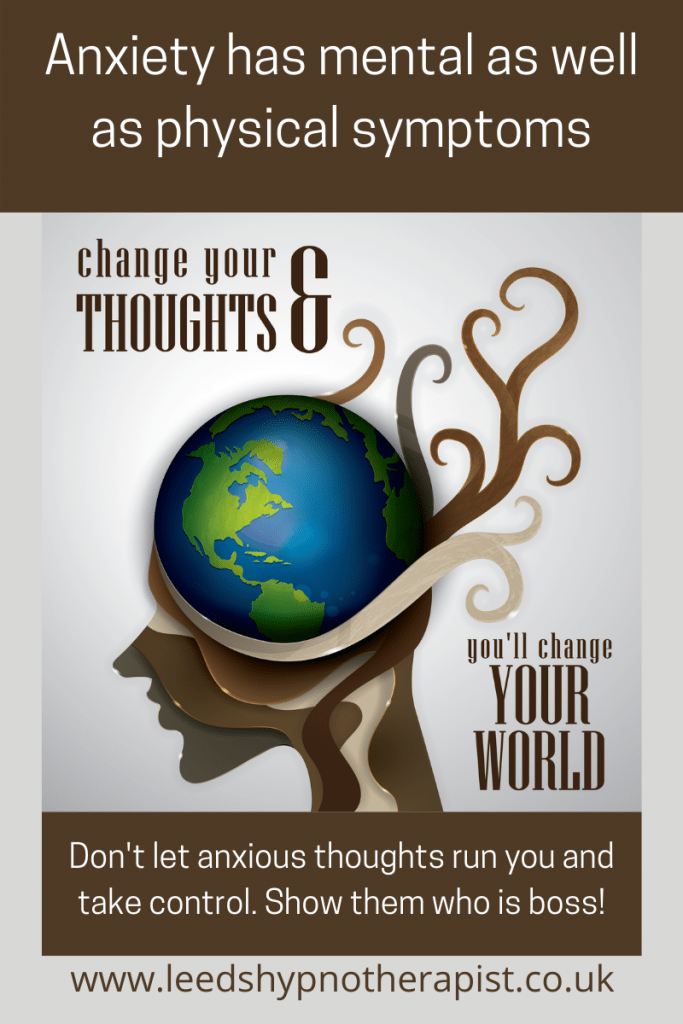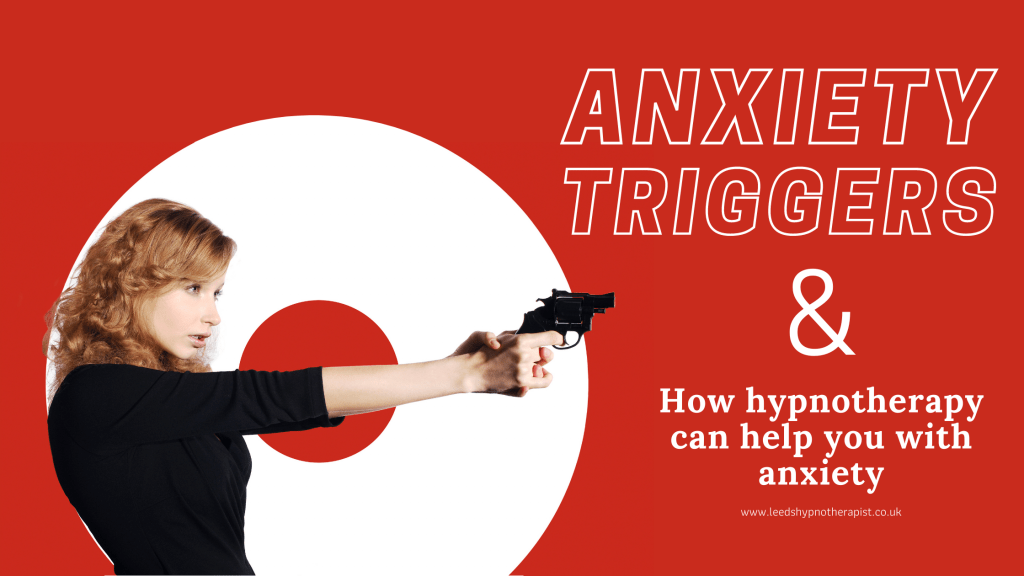Anxiety disorders are one of the most common mental health conditions in the United Kingdom. In fact, anxiety disorders are so prevalent that they are considered to be a public health epidemic. And yet, despite how common these conditions are, there is still a lot of misunderstanding and misinformation about them. This article will help to clear up some of the confusion by providing information on anxiety triggers, panic attacks, and mental health in general.
What are anxiety triggers and what can they be caused by?
Anxiety is defined as an unpleasant emotional state in which a person feels nervous, apprehensive, or frightened.
Anxiety Triggers can be external, internal, and situational. External anxiety triggers include physical sensations such as body aches and pains, smells, noises and sights; the perception of these sensations is experienced as anxiety by the person who has them. Internal anxiety triggers may include thoughts such as “I am not good enough”; “I am not good at anything” “I never succeed”; “I am going to fail”; or “Something bad will happen to me”.
Situational anxiety triggers include situations that make you feel stressed, like a meeting where people look at you with pity, a long trip where you have to sit in a cramped car seat for hours on end, flying, or an angry boss who shouts at you when they catch you out of turn.
People often report that they have no control over their anxiety triggers or that it is uncontrollable. This reflects a misunderstanding of what anxiety really is: it is the result of specific physiological responses (called autonomic nervous system) to specific stimuli (called stressors), which are triggered by increased levels of hormones such as cortisol and adrenaline so that the body prepares for immediate danger (fight-or-flight). If these stressors are removed from your life for too long (such as through medication), your body gets used to them and starts responding similarly when they re-occur.
Anxiety can also start without any external anxiety triggers! For example, Some people have had panic attacks because their brain was preparing itself for an attack because they were constantly feeling worried about being ill for a second or third time after a bad episode of illness.
In general, most people are aware of their anxiety triggers. You might have anxiety triggers around social situations (social anxiety disorder), being in crowded or busy places might trigger anxiety for you, your anxiety triggers might be about being on your own (separation anxiety disorder) or everyday things could trigger anxiety or you (generalized anxiety disorder). Whichever anxiety disorder you have, you will be much more aware of what can trigger anxiety for you and which symptoms of anxiety you experience.
Here are the most common things that can trigger anxiety in people:
- Crowds
- Meeting new people
- Being in a confined space
- Heights
- Spiders or other insects
- Dogs
You can read more about social anxiety disorder and how hypnotherapy can help here.
How do anxiety attacks manifest themselves and what are anxiety symptoms?
Anxiety, the anxiety-inducing sensations we experience when we are fearful and uncertain, is a very serious psychological disorder.
Anxiety disorders are often accompanied by physical symptoms:
- nausea
- fainting
- sweaty palms
- lightheadedness
- dizziness.
But the problem is that these feelings and physical symptoms often come on without warning. The severity of anxiety disorders can vary from one person to another — sometimes it may not even be noticed or recognized until years or even decades later.
Unfortunately, there’s no known cause for anxiety disorder and no known cure. Most of us feel anxious at some point in our life — either because of something we’ve done or something has happened to us (e.g., work stress). But if you’re experiencing this condition right now, it is important to know that it doesn’t have to be this way; there is a lot you can do to control your symptoms of anxiety and soothe your nerves.

Mental symptoms of anxiety disorders
Anxiety disorders are a group of mental disorders that trigger anxiety. People with anxiety disorders have intense, persistent anxiety or fear that interferes with their daily lives. The symptoms can be so severe that they may prevent people from going to work or school, or socializing with others.
There are several different types of anxiety disorders, each with its own set of symptoms. Some of the most common mental symptoms of anxiety disorders include:
- feeling overwhelmed or out of control
- feeling constantly anxious or on edge
- intrusive thoughts or images
- excessive worry or rumination
- drastic changes in mood or behaviour
- difficulty concentrating or focusing
- physical sensations such as racing heart, shortness of breath, or dizziness.
If you are experiencing any of these symptoms, it is important to seek professional help. Anxiety disorders are treatable but left untreated, they can become debilitating. If you think you may have an anxiety disorder, please talk to your doctor or a mental health professional.
What is the difference between an anxiety disorder and a panic attack disorder?
Panic attacks are generally characterized by sudden, overwhelming fear, typically due to sudden or unexpected external stimuli. Panic attacks are often associated with acute or chronic anxiety. However, there is a wide range of potential causes of anxiety that does not necessarily present in the same way.
Anxiety disorders can be categorized as either panic disorder (PD) or generalized anxiety disorder (GAD). PD is characterized by recurrent panic attacks and/or panic disorder with other features such as agoraphobia, social phobia, and certain types of obsessive-compulsive actions. GAD has a central tendency of causing high levels of stress and subsequent nervousness for most people whose lives are affected by it. The nature and severity of the symptoms will vary widely between people but are likely to include various degrees of emotional distress in addition to physical symptoms such as sweating and nausea.
How can mental health be improved and maintained?
Mental health is a term that just doesn’t seem to get its due. It’s one of the most misunderstood and stigmatised topics, but it also happens to be one of the most important.
When I think of mental health and wellness, my first thought is always positive, optimistic stuff: happiness, success, learning new things or doing something new and exciting. And yet, many people still struggle with their mental health — not in terms of what they need to do to feel better or how they can improve their quality of life.
What is it about mental health that people are so afraid and reluctant to talk about? Why does everyone want to keep it all a secret? Is it because you are embarrassed by your own thoughts and feelings? Or is it because you aren’t confident enough in your own knowledge to discuss them openly? Is it because you are afraid that you won’t be able to cope with what you know or have experienced in the future if you talk about them openly?
The truth is that most people – especially those who suffer from anxiety and depressive disorders – have been through a lot in their lives. Some did well at school; others didn’t. Some had parents who were supportive of them; others weren’t. Some achieved great success in their careers; others… not so much. Their struggles with anxiety aren’t unique — they happen to millions of people every day on all continents around the world.
And yet, compared to other communities where mental illness is more common, rates of mental illness are just as high within our company culture as they are elsewhere.
So what gives?
There are a few things that I think contribute to the high rates of anxiety and depression in our company culture. First, we live in a world that is constantly changing and evolving, and it can be hard to keep up. We’re also under constant pressure to do more with less, and this can lead to burnout. Finally, we work in an industry that is driven by technology, and this can create its own set of challenges.
So how can mental health be improved and maintained? Here are some suggestions:
- Get enough sleep: Most people need around eight hours of sleep per night. Consider going to bed and waking up at the same time each day to help regulate your body’s natural sleep rhythm.
- Eat a balanced diet: Eating nutritious foods helps your body to function at its best. Make sure to include plenty of fruits, vegetables, and whole grains in your diet.
- Exercise regularly: Exercise releases endorphins, which have mood-boosting effects. A moderate amount of exercise is the key to maintaining mental health.
- Take breaks: When you’re feeling overwhelmed or stressed, take a few minutes to yourself to relax and rejuvenate. Taking regular breaks will help you stay calm and focused throughout the day.
- Connect with others: Spending time with loved ones or close friends can reduce stress levels and promote positive emotions. If you’re feeling isolated, consider joining a club or group.
- Seek professional help: If you’re struggling to cope with anxiety or depression, don’t hesitate to seek professional help.

What treatments are available for anxiety disorders?
Anxiety disorders are treatable, and the vast majority of people who receive treatment experience significant improvement in their symptoms. There are a variety of different approaches that can be effective in treating anxiety, including cognitive-behavioural therapy, exposure therapy, and relaxation techniques.
In some cases, medications may also be prescribed to help manage anxiety symptoms. The most common type of medication used to treat anxiety is called a selective serotonin reuptake inhibitor (SSRI), which works by increasing levels of serotonin in the brain. Other types of anti-anxiety medications include benzodiazepines and tricyclic antidepressants.
In some cases, hypnotherapy may also be used to treat anxiety disorders. By working with a trained hypnotherapist, people with anxiety can learn how to relax and control their anxious thoughts.
While there is no one-size-fits-all approach to treating anxiety disorders, with appropriate treatment most people are able to significantly reduce their symptoms and improve their quality of life.
How hypnotherapy can help with anxiety disorders and panic attacks
Hypnotherapy is a form of therapy that uses hypnosis to treat a range of mental health conditions including anxiety disorders and panic attacks. It consists of the hypnotic induction and the therapeutic session, which may last anywhere from one to two hours.
Getting started with hypnotherapy isn’t difficult, but it does take a little time and effort. In order to get the most out of your hypnosis sessions, you need to dedicate some time beforehand to learning how hypnotherapy works, what you will be doing during your sessions, and what you can expect in terms of outcomes. You are also going to have to commit to a regular schedule — at least once per week — so that you can consistently do your best work.
I recommend to all of my clients to do at least three sessions once a week as we are taking advantage of the momentum created by each session. If you require a fourth session, that one can have a one or two week gap while you continue to process the work we have already done. For people with anxiety disorders this is essential!
Self-hypnosis for general anxiety disorder. Does it work?
Anxiety is a normal emotion that everyone feels at some point in their lives. However, for some people, anxiety can become so severe that it interferes with their everyday life. This is known as a general anxiety disorder (GAD). People with GAD often feel extremely anxious and have difficulty relaxing. They may also experience symptoms such as racing heart, sweating, and difficulty concentrating. While medication can be effective for some people, others may prefer to try self-hypnosis.
Self-hypnosis is a form of hypnotherapy that uses relaxation techniques to achieve a state of deep concentration. Once in this state, people are more open to positive suggestions. For example, a person with GAD might give themselves suggestions such as “I am calm and relaxed” or “I am in control of my anxiety”. These positive affirmations can help to treat anxiety by changing the way the person thinks and feels about their condition. There is no guarantee that self-hypnosis will work for everyone, but it is considered a safe and effective treatment for anxiety disorders.
Finding an anxiety specialist near me in Leeds
If you are looking for help with anxiety triggers, The Leeds Hypnotherapist can help. We’ve outlined some of the most common treatments for anxiety disorders, including hypnotherapy. With appropriate treatment, most people are able to significantly reduce their symptoms and improve their quality of life.
To find out more about how we can help you, please contact us today. We offer a free initial consultation, so you can learn more about hypnotherapy and how it can help you manage your anxiety. Don’t suffer in silence – reach out today for a free consultation and see how we can help you take back control of your life.
Book now and start on the road to recovery.




